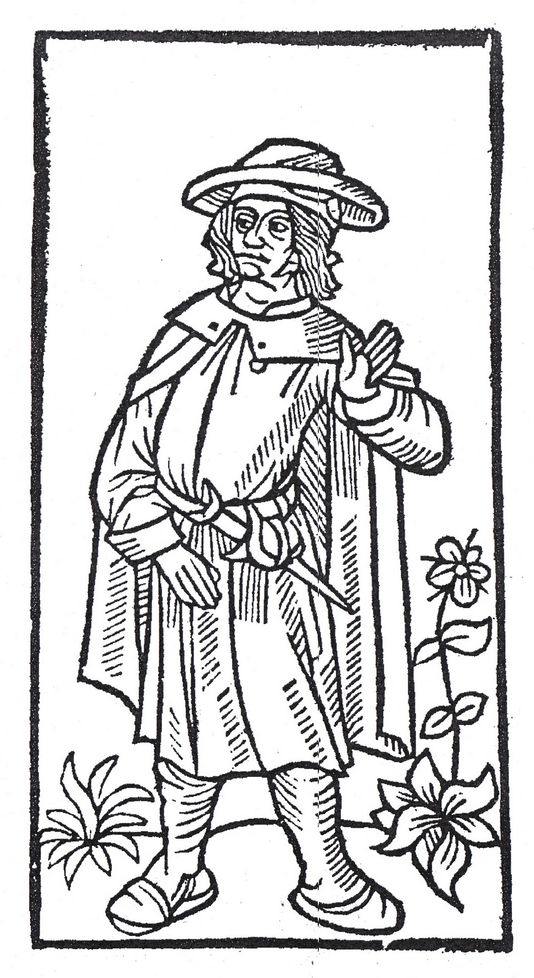François Villon
| François Villon | |
|---|---|

Stock woodcut image, used to represent François Villon in the 1489 printing of the Grand Testament de Maistre François Villon
|
|
| Born | c. 1431 |
| Died | c. 1463 (aged around 32) |
| Occupation | Poet |
François Villon (pronounced [fʁɑ̃swa vijɔ̃] in modern French; in fifteenth-century French, [frɑnswɛ vilɔn]), born in Paris in 1431 and disappeared from view in 1463, is the best known French poet of the late Middle Ages. A ne'er-do-well who was involved in criminal behavior and had multiple encounters with law enforcement authorities, Villon wrote about some of these experiences in his poems.
Villon was born in Paris in 1431 (the year that Joan of Arc was burned at the stake). One source gives the date as April 19, 1432 [O.S. April 1, 1431] .
Villon's real name may have been François de Montcorbier or François des Loges: both of these names appear in official documents drawn up in Villon's lifetime. In his own work, however, Villon is the only name the poet used, and he mentions it frequently in his work. His two collections of poems, especially "Le Testament" (also known as "Le grand testament"), have traditionally been read as if they were autobiographical. Other details of his life are known from court or other civil documents.
From what the poems tell us, it appears that Villon was born in poverty and raised by a foster father, but that his mother was still living when her son was thirty years old. The surname "Villon," the poet tells us, is the name he adopted from his foster father, Guillaume de Villon, chaplain in the collegiate church of Saint-Benoît-le-Bétourné, and a professor of canon law, who took Villon into his house.
Villon became a student in arts, perhaps at about twelve years of age. He received a bachelor's degree from the University of Paris in 1449 and a master's degree in 1452. Between this year and 1455, nothing is known of his activities. As the author of the 1911 Encyclopædia Britannica article writes, "Attempts have been made, in the usual fashion of conjectural biography, to fill up the gap with what a young graduate of Bohemian tendencies would, could, or might have done, but they are mainly futile."
...
Wikipedia
